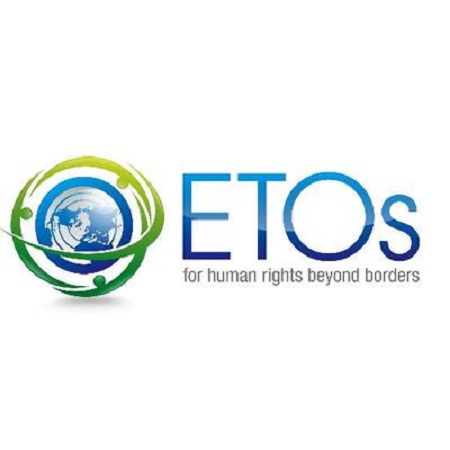A Strategy on States’ Extraterritorial Human Rights Obligations

Habitat International Coalition – Housing and Land Rights Network participated in the biennial Global Meeting of the Extraterritorial Obligations (ETO) Consortium, this time on 21–24 May 2019 in the Ugandan capital of Kampala.
The purpose of the 2019 Global Meeting was to review and evaluate the strategic plan on the extraterritorial human rights obligations of states for 2019–2020, and to identify priority issues and concrete activities in diverse regions for the remainder of the period. The 71 participants from 26 countries discussed the current political context at the international and regional levels and how to address the challenges related to the implementation of states` extraterritorial obligations relating to economic, social and cultural human rights.
The Middle East and North Africa (MENA) office of Habitat International Coalition – Housing and Land Rights Network has participated in the review of priority issues and current and future challenges in implementing and strengthening the extraterritorial obligations of states. Participants from HIC highlighted the conflict, occupation, war and displacement challenges to peace and security in the MENA region and the extent to which the extraterritorial behavior of states contribute to the outbreak or continuation of those situations.
HLRN Coordinator Joseph Schechla presented a brief report on some of the issues on which the Network had focused in the past, as well as its role in the ETO Consortium specializing in conflict, occupation and war situations:
- The role of Israeli parastatal institutions (Jewish National Fund, Jewish Agency/World Zionist Organization), operating from the territorial jurisdiction of more than 50 countries to carry out the crime of population transfer in Palestine, dispossessing the indigenous Palestinian people and transferring citizens from other countries to Palestine to expand illegal colonization;
- The European Union-Morocco Fisheries Agreement, which permits the exploitation of natural resources in the territorial waters of occupied Western Sahara, without consultation with the Saharan population, denying the Sahrawi people’s right to self-determination and sovereignty over their natural resources;
- The cross-border environmental damage caused by the destruction of Lebanon’s Jiyya Power Plant in during the 2006 war on Lebanon;
- The Middle East Quartet partners’ economic blockade as a collective punishment of the people of Gaza; and
- Investments of Veolia and Alistom corporations in the transport infrastructure of illegal settler colonies in the occupied Palestinian territories.
HLRN Legal Advisor Ahmed Mansour presented the latest developments and other challenges in the region requiring more activation of states’ extraterritorial obligations in the face of war crimes and impunity in Yemen, Syria and Libya, whereby states support parties to conflict, bringing about the destruction of property and the refugee and displaced persons crisis. While the international community bears the responsibility for these crises, foreign construction companies and reconstruction plans risk entrenching demographic manipulation in the war-damaged countries, and whereas mega development projects ignore indigenous peoples` rights to land. Ahmed noted some of the challenges that exist in the civil society itself, including political tendencies not to acknowledge Morocco’s occupation of Western Sahara, and the failure to consider the Arab-Arab investments that harm the economic and social rights of the peoples of the region due to the ideology of Arab nationalism and, thus, also failing to recognize the existence of indigenous peoples in the MENA region.
In the Global Meeting of the Alliance of Foreign Commitments, Joseph Schechla reviewed another dimension of these obligations: the role of local authorities/governments and their extraterritorial human rights obligations as organs of the state, especially in their relations with third parties, service providers, contractors, cities and municipalities involved in illegal situations and human rights violations in other countries. States and their various spheres of government (central as well as local) bear an obligation not to violate peremptory norms of public international law, including by not cooperating or signing trade agreements with parties that benefit from an illegal situation such as occupation or violations of the economic and social human rights of the people in other states.
In this same line, HIC-HLRN is current collaborating with civil society partners concerned with food security to monitor the extraterritorial human rights obligations of states to ensure food security and nutrition in the context of protracted crises. That exercise will culminate in a report to the UN Committee on World Food Security in 2020.
|